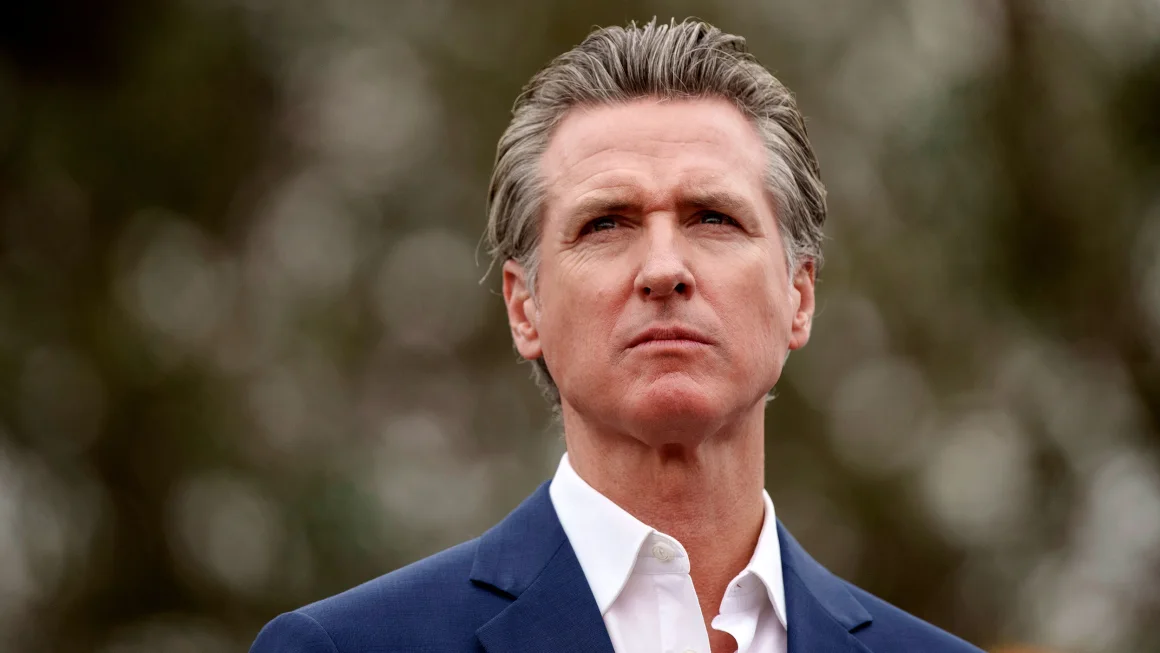In a bold move designed to safeguard California’s progressive policies, Governor Gavin Newsom has convened a special session of the state legislature to prepare for anticipated challenges from the incoming Trump administration. The session, which began on December 2, reflects California’s determination to uphold its left-leaning stances on climate change, reproductive rights, and immigration in the face of a federal government poised to pursue policies that could undermine them.
A Preemptive Strategy
Governor Newsom, who has positioned himself as a staunch opponent of President-elect Donald Trump, is focused on ensuring California’s policies remain intact despite potential federal interference. At the core of this special session is a plan to strengthen the legal defenses of the California Attorney General’s office, which played a central role during Trump’s first term by filing over 120 lawsuits against the federal government.
Newsom’s approach is rooted in the belief that the Trump administration will attempt to roll back progress made on key issues in California, particularly on climate policy and immigrant protections. “California will not stand idly by while the federal government erases decades of progress,” Newsom stated in a press release.
Protecting Progressive Policies
Key items on the special session’s agenda include:
- Climate Change Protections: Shielding California’s strict emissions standards and renewable energy mandates from potential federal efforts to weaken environmental regulations.
- Reproductive Rights: Strengthening laws that protect access to abortion, including measures that position California as a sanctuary state for abortion seekers from other parts of the country.
- Immigration Policies: Safeguarding sanctuary city policies and expanding state-funded healthcare for low-income residents, regardless of immigration status.
Republican Criticism
While Democratic lawmakers and advocacy groups have praised the governor’s actions, Republican critics have accused Newsom of wasting taxpayer money on political posturing. Many Republicans argue that instead of engaging in a confrontational stance, California should seek opportunities to collaborate with the federal government on shared priorities.
State Assemblymember James Gallagher (R-Yuba City) called the special session “a costly and unnecessary political stunt,” adding, “Rather than preparing for legal battles, the governor should focus on policies that unite Californians and work with federal authorities where common ground exists.”
A History of Resistance
California has a track record of clashing with federal Republican administrations. During Trump’s first term, the state emerged as a leader of the so-called “resistance,” challenging federal policies on issues such as immigration, environmental protections, and healthcare. Many of these lawsuits were spearheaded by the California Attorney General’s office, which Newsom is now fortifying in preparation for what he anticipates will be a similar battle.
In one high-profile case, California successfully fought to maintain its stricter vehicle emissions standards after the Trump administration attempted to roll back national regulations. The state also led efforts to block the Trump administration’s attempts to withhold federal funding from sanctuary cities.
The Stakes for California
With President-elect Trump promising to implement sweeping changes to federal policies, the stakes are high for California, which has positioned itself as a leader in progressive governance. The state’s economy, the largest in the nation, is heavily intertwined with industries like renewable energy and technology that could be impacted by Trump’s regulatory rollbacks.
“California’s leadership has always been a model for the rest of the country,” said Assembly Speaker Anthony Rendon. “We cannot allow Washington, D.C., to undermine the progress we’ve made.”
Broader Implications
The outcome of California’s special session could have far-reaching implications for the relationship between states and the federal government. By preparing for potential legal challenges and doubling down on its progressive agenda, California is setting the stage for what could become a blueprint for state resistance to federal policies under Republican leadership.
However, the move also risks deepening divisions between California and other states, particularly those that align more closely with Trump’s agenda. Critics argue that Newsom’s strategy could alienate Californians who favor a less adversarial approach to federal relations, while supporters see it as necessary to protect the state’s values.
Looking Ahead
As the special session continues, California’s legislative agenda will be closely watched by both allies and opponents of the Trump administration. Whether the state can successfully “Trump-proof” its laws remains to be seen, but one thing is clear: California is bracing for another round of high-stakes legal and political battles with Washington.
Sources:
- California lawmakers to begin special session to ‘Trump-proof’ state laws
- Newsom calls special session to ‘Trump-proof’ California
- ‘We won’t sit idle’: Newsom goes on offensive against Trump
- California gears up for legal battle with Trump administration

